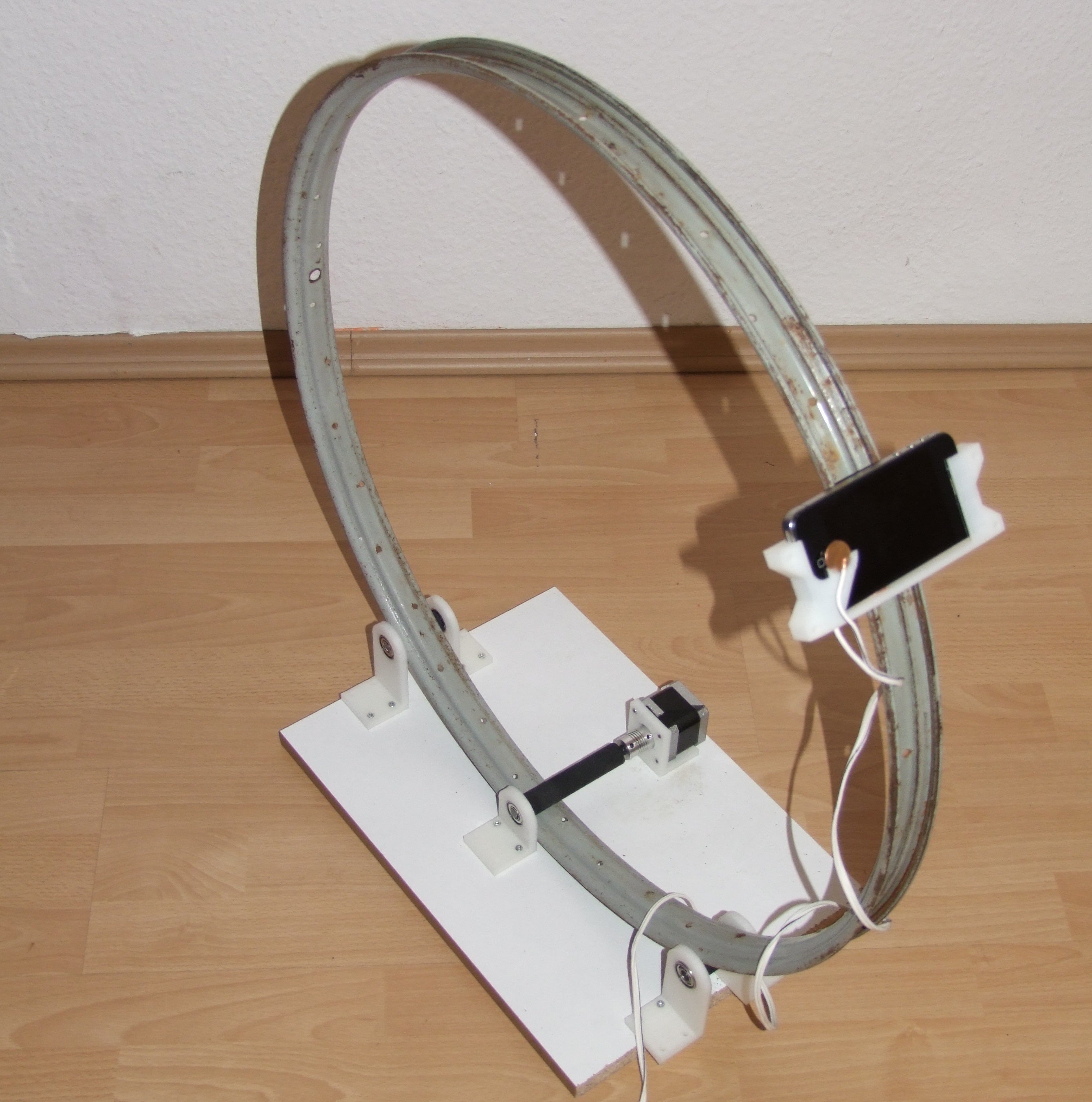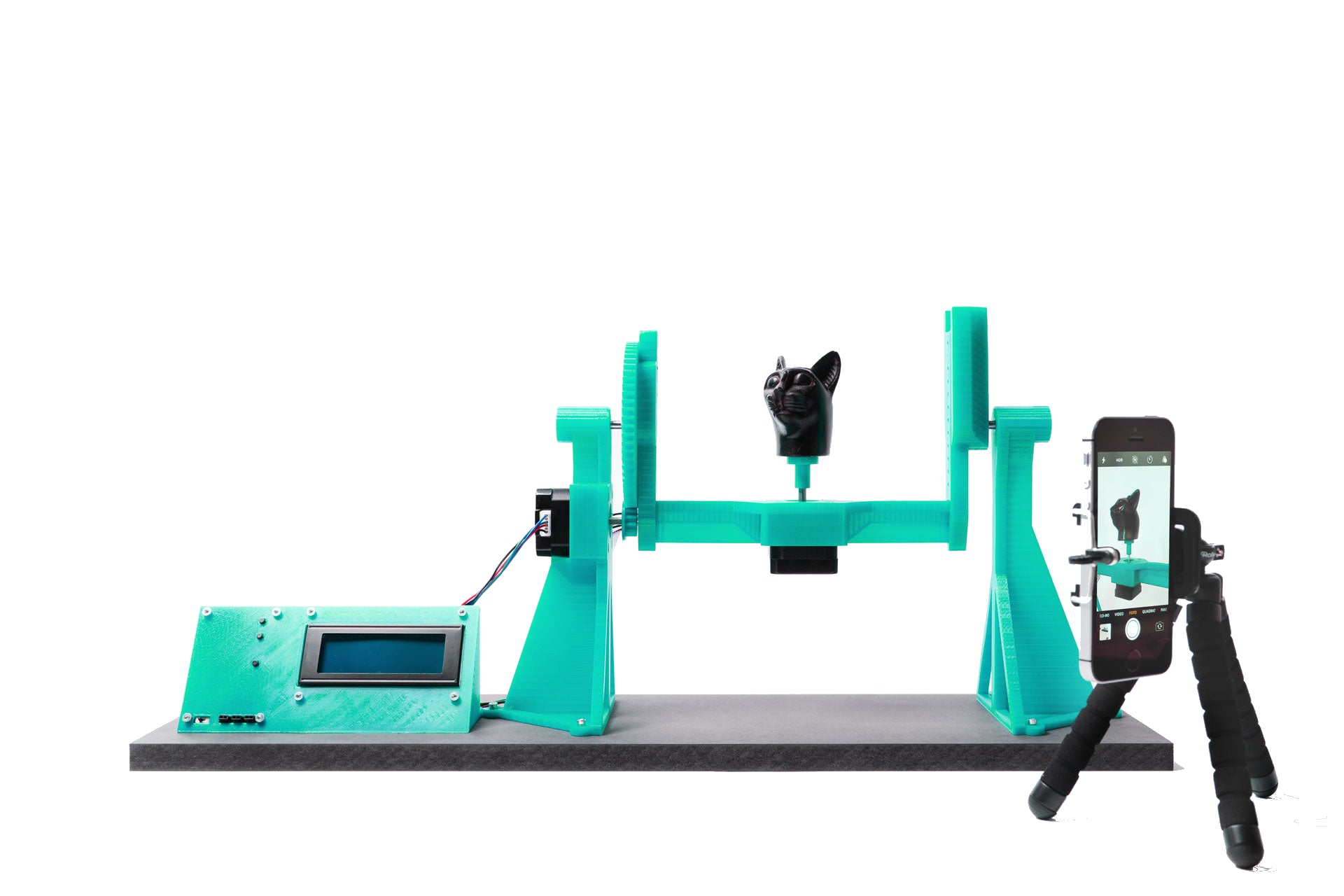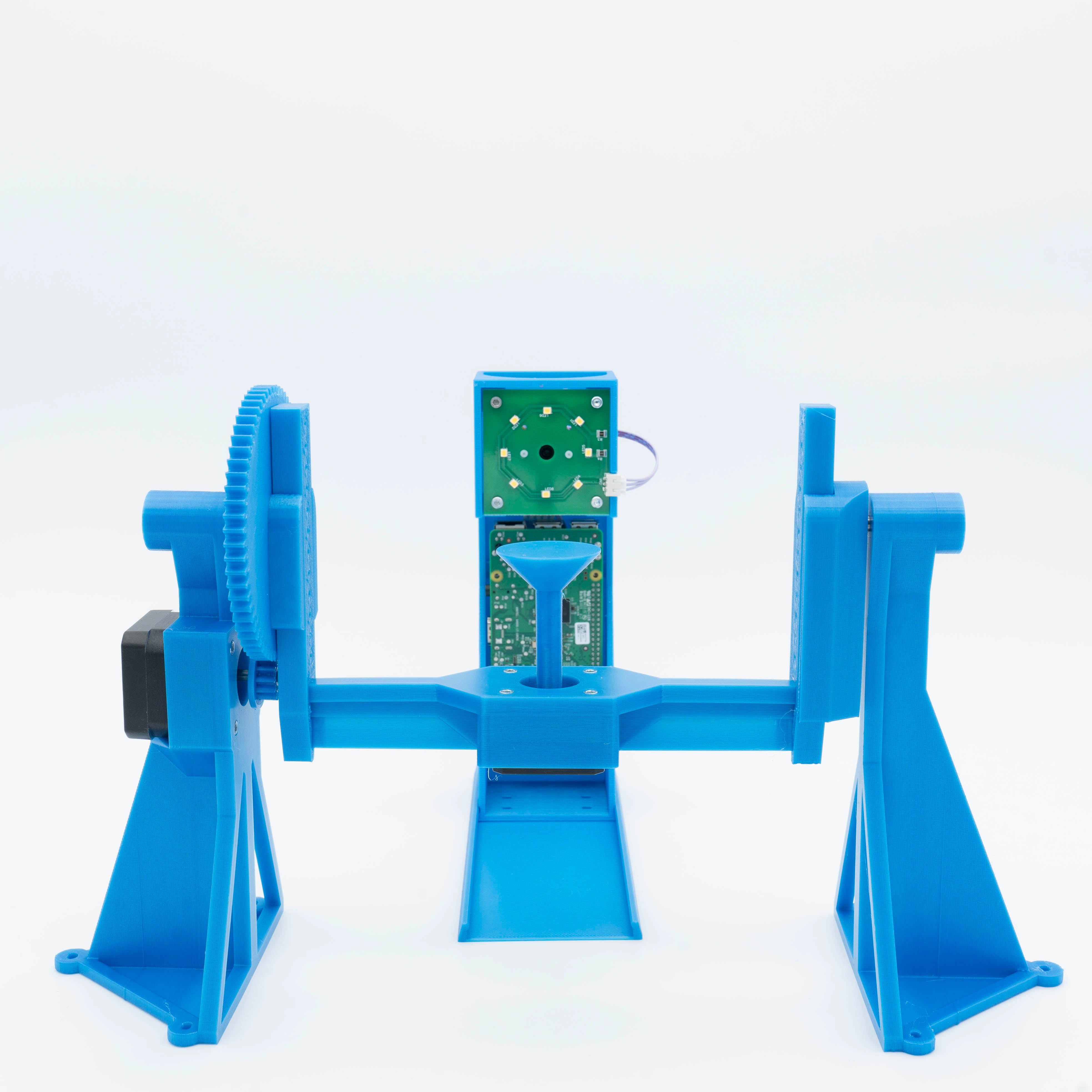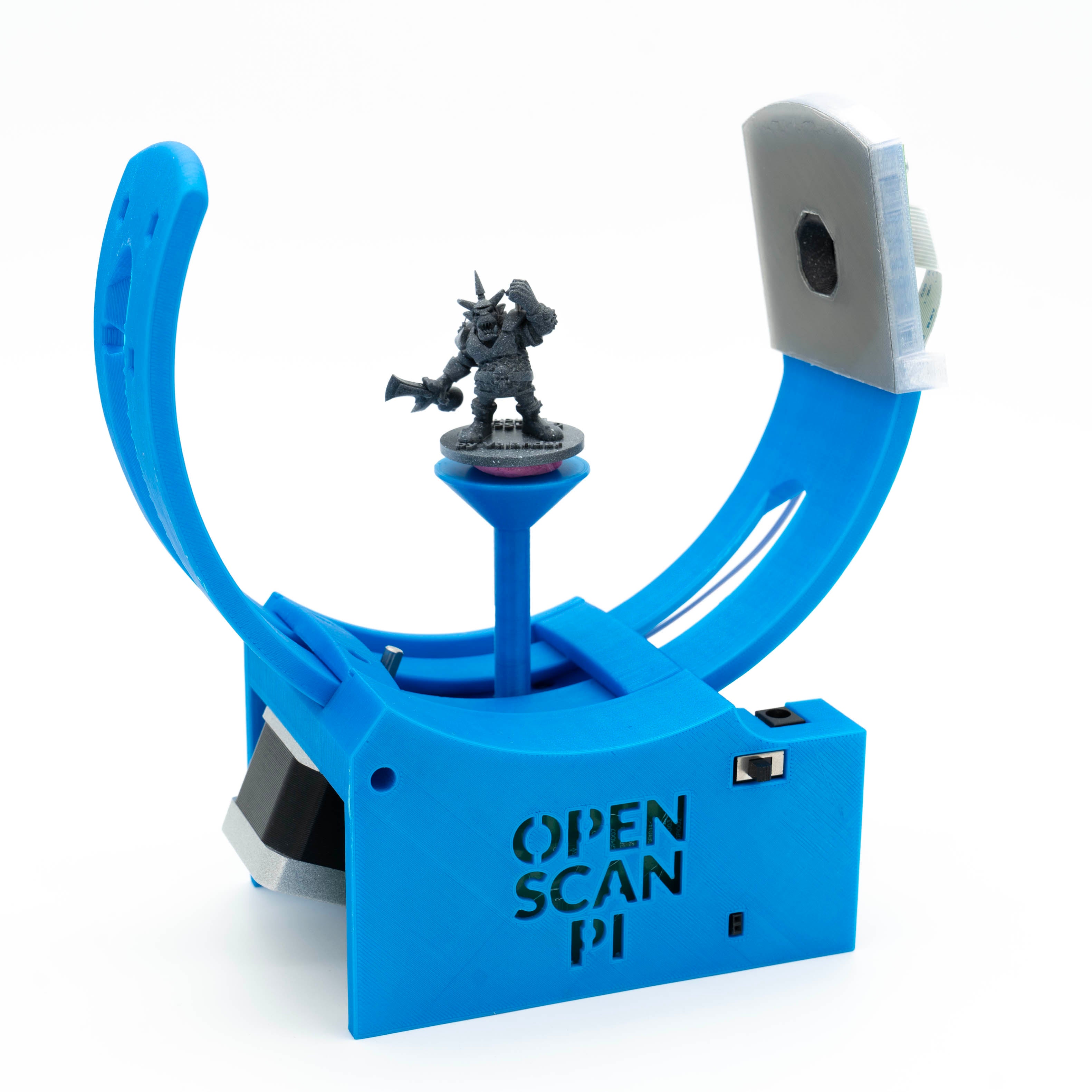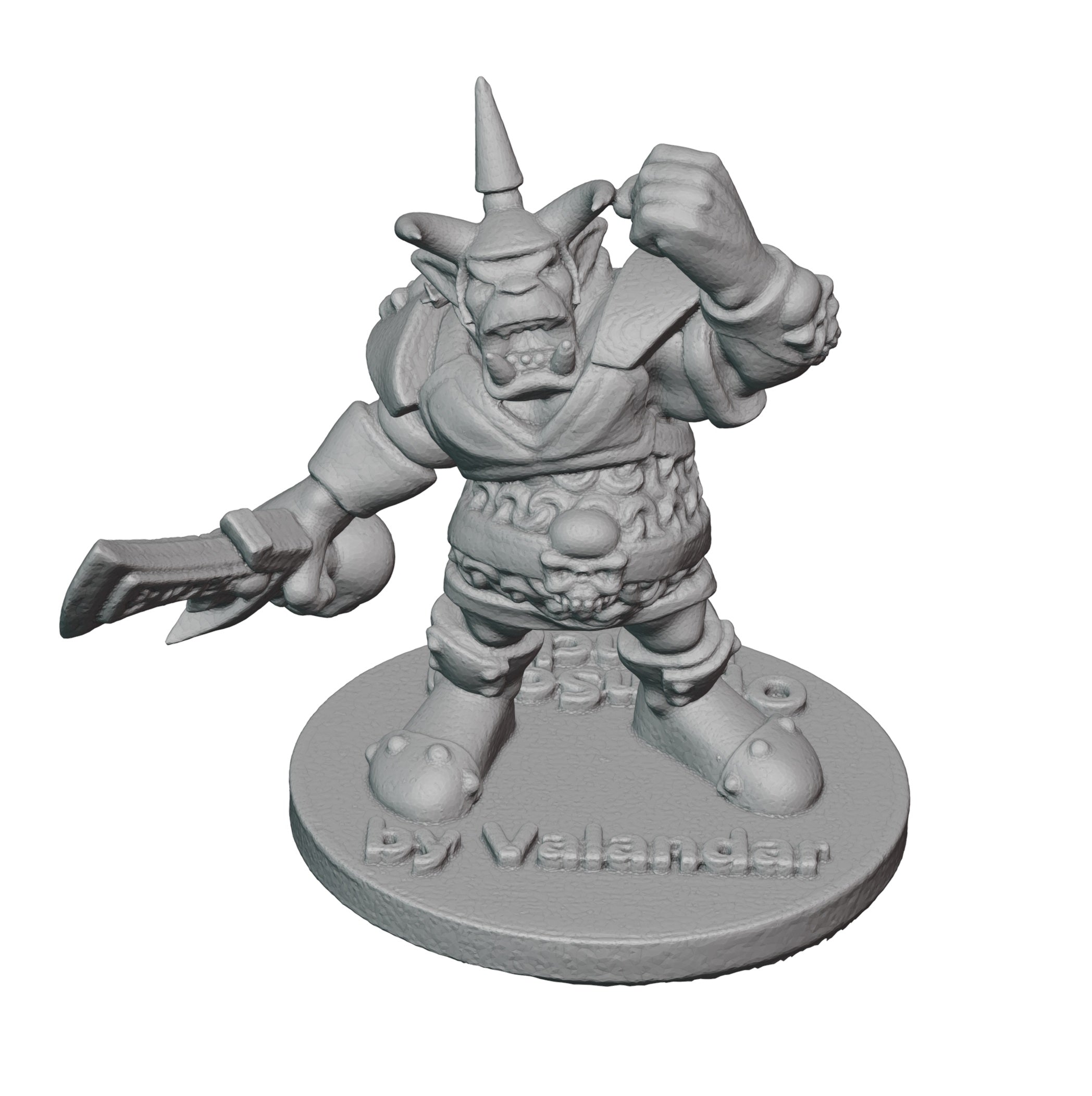About
The OpenScan Journey
In mid-2017, I acquired my first 3D printer, with little prior experience or understanding of its potential applications. Recognizing the limitations of solely printing existing 3D models, I sought ways to create my own designs, either through CAD skills or 3D scanning. Lacking both resources initially, I turned to photogrammetry due to its accessible entry point.
Constrained by budgetary concerns, I delved into research and discovered that photogrammetry offered a relatively low-cost scanning method. Armed with just my smartphone, I embarked on my first scanning attempts, though the process proved to be quite labor-intensive. It took approximately 30,000 manual photos before I began to grasp the intricacies of the technique.
Realizing the need for automation to streamline the process, I explored CAD software to develop my own rudimentary 3D scanner.
Before 2017, I was unfamiliar with the Maker Community and the concept of open-source. I was astounded by the wealth of freely available knowledge that individuals had already contributed. Immersing myself in countless hours of YouTube tutorials, I became enamored with the empowering nature of open and accessible information.
Despite receiving what could be considered a solid education (completing high school and university), the depth and breadth of what I absorbed from the online community far surpassed my formal schooling by leaps and bounds.
Recognizing the value of this knowledge, I felt compelled to give back if possible. In 2017, I embarked on a new path within the German educational system, this time as a mathematics teacher. I had hoped to instill my passion for learning in others, but encountered a rigid and outdated system.
Amidst this, the OpenScan project continued to flourish. In early 2020, I made the decision to fully commit myself to the Maker movement, dedicating myself to advancing the project.
Subsequently, OpenScan found a permanent residence in a dedicated workshop/office space located in the vibrant heart of Halle (Saale), Germany. This space serves as the hub where ideas are transformed into reality, with the support of several freelancers who contribute to the ongoing development of the project.
About the founder:
Thomas Megel
born 1987 in Bautzen, Germany
2006 - 2011 studied Physics and Economy in Leipzig, Germany
2011 - 2012 "world trip" - Australia, India, Nepal, Thailand, Cambodia, Lao, China, Mongolia, Russia
2012 - 2014 co-founder Kosmos Bouldering Gym in Leipzig, Germany
2015 - 2016 construction worker, Europe
2017 - 2018 high school mathematics teacher, Halle, Germany
2018 - ... OpenScan :)

